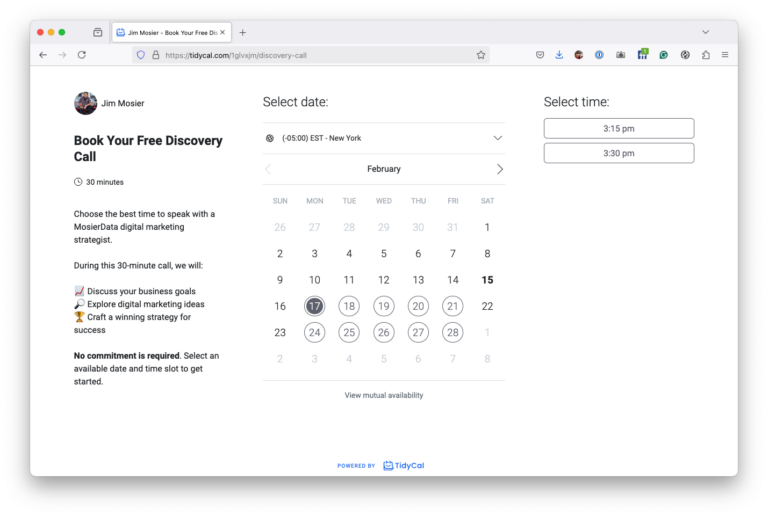People crave individuality; it has value. Tell your story! Customers want to know who you are and, if you have a team, who is on it and what they do. This is just one of the many things your website visitors are looking for when they come to your site. What else are they looking for?

1. A distinct statement of why you are different
Think of the section “About Us” as an invite to describe your business interestingly, vividly, and honestly as possible. Write about your team too; not just your business. Include bios that mention expertise, years of experience and any unique attributes that set you apart from the competition.Always answer these key questions: “What makes your business unique? Why should I (the consumer) buy from you?” This often goes missing from business sites because the owners haven’t done the strategic thinking necessary to figure that out. When you take the time to supply these answers customers get the feeling you truly care about them.
2. An explanation of how you can help them
It’s unbelievable how many companies leave their visitors wondering what exactly they are offering on their website. Make it a priority to list who you are and how you can help your customers on your home page, accompany with links to a Products/Services page for more specifics.While you don’t need to divulge every minuscule detail about your offerings, you do need to list what is included in each purchase. Being complete in your descriptions is important because consumers will most likely not contact a company for missing information–they’ll just move on to a competitor.
3. Contact information, including a phone number and physical location
This may seem simple, but sometimes companies choose to be vague about their location. Thinking “If all my business is done online there is no need to publish an address or phone number.” Others are home-based and they worry that giving their address or hometown will hinder them.This information is a must for building credibility and trust with the consumer. A phone number, contact email or form, address, and pictures go a long way toward building credibility especially if you have a small business. Even if no one will ever visit, giving a physical location comforts a customer that your business is real and legitimate and remember to include a phone number and a map.
4. Reviews & Recognitions
Customer testimonials, client lists, case studies, awards and recognition you’ve received, positive news clippings and such. Potential customers are intrigued, they want to know who you do business with, and what your current customers have to say about their experiences. Client lists are also especially important if you are a B2B company. Have you worked with a big named company? People like to see that kind of validation. Having a presence on social networking sites and blogs, especially those in your industry, is another great form of validation among customers.
5. Secure Socket Layer (SSL)
SSL is an encryption system that helps protect the privacy of data exchanged between a customer and a website. If you have an e-commerce site that takes credit card and personal information, customers want to know that their sensitive data is encrypted. Get SSL if you don’t have it! If you do, let your customers know about it and about any other safeguards you proactively take.
6. Ease of use and navigation
If they can’t find it, they can’t buy it. Keep your site uncluttered, clean, and easy to navigate. This will also help you study traffic and usage patterns on your site to help you understand your visitors’ journey.
7. Clear guidance on your processes
Make it obvious to visitors how to order – and where to go and what to do should something happen out of the ordinary. Be upfront about shipping costs, order tracking procedures and how customers can get status reports. (Don’t wait until after they enter their credit card information to show these things) Should the need arise, customers want to know how you will handle complaints and problems, return procedures and if you have a money-back guarantee. A FAQ (frequently asked questions) page can be very helpful for this section but also include a way customers can contact your business or fulfillment agency for more information if needed.
8. A way to give feedback
Recommend that your customers leave feedback about your products and services, ordering process and website in general, by providing feedback forms or customer service e-mail links. Offering this shows you care about your customers after the purchase. Perhaps you could even give an incentive or perk for customers who provide their feedback. You might even get some good stories to feature on your site or in your blog.
9. Evident calls to action
Customers want signs or buttons that clearly show how they should interact with your site, “Buy now” or “Sign up for our newsletter” “Start My Free Trial” “Quote My Job” “See Our Work” or “Click here for more information.” Many small-business sites don’t provide calls to action or they don’t present them clearly enough. This is your time to grab your visitor’s attention – they are on your site, engage them!
10. Special offers and personalization
Give special offers, incentives or coupons to gain new customers or encourage loyalty. Send a thank you note, provide free gift wrapping services or other personalized follow ups after each purchase. Having a personalized touch shows you care.

